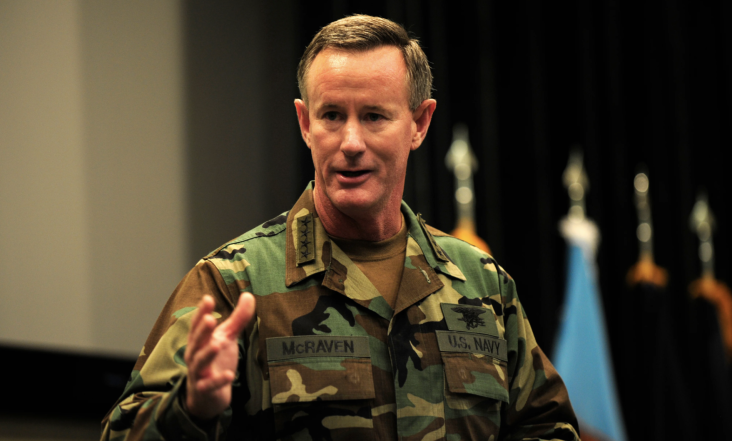Admiral William McRaven brings leadership discussion to Jonesboro Chamber annual meeting
by October 3, 2024 2:17 pm 520 views

Navy Seal William McRaven knew his chance had come. Fresh out of Navy Seal training, his commanding officer wanted to chat with him.
McRaven postulated that he’d been selected to help rescue some prisoners of war in some remote part of the world, or maybe he was going to be on a special team to take out a Soviet submarine.
When he arrived in his commander office, he was told that the Commodore, the overall commander had a special request. A local Fourth of July parade had been slated and he wanted McRaven to build a frog float.
Later in the locker room, he was sulking about the assignment. Another sailor was in the room and told him to do the best he could. He took those words to heart and did the best he could do.
“I’ve built a lot of frog floats during my life,” McRaven said during a virtual keynote speech at the Jonesboro Regional Chamber of Commerce’s annual meeting on Thursday (Oct. 3).
McRaven spent 37 years as a Navy Seal and would later become an admiral. He was the commanding officer that oversaw the capture of Saddam Hussien and he oversaw and approved the raid that killed Osama bin Laden.
His uncle, Al McRaven, taught at Arkansas State University for 40 years, he said.
“It has a soft spot in my heart … I’ve been to Jonesboro many times,” he said.
The retired admiral wrote a book about leadership, “The Wisdom of the Bull Frog.” There are three rules that must be considered when making leadership decisions, he said.
“Is it moral? Is it ethical? Is it legal?” he said.
One of his war heroes, Admiral Chester Nimitz, had to make one of the boldest decisions in history. Nimitz was the commander of all U.S. forces in the Pacific during World War II, and he thought his battleships should fight the Japanese near the island of Midway.
The political brass in Washington D.C. discouraged the move fearing the entire Pacific fleet might be lost. His military underlings also resisted the idea, thinking it was too risky.
Nimitz visited another admiral and friend to get advice. The friend reminded him that when you are in command you and you alone have to make tough decisions. Nimitz opted to fight at Midway and it turned the war in the Pacific.
“When you are the commander, you have to command,” McRaven said.
McRaven said that his advice is transferable to business and civic leaders. He said many people in the room as he spoke still have to mop floors, take out the trash and do other tasks that seem beneath their rank and station but they are not.
While serving as the Navy Seal commander for the western U.S. in 2001, McRaven was injured in a parachute accident. He spent months in a hospital recovering from his injuries.
The next year there was a meeting with other Seal commanders and it was customary for them to gather to exercise and go for a 10-mile run together.
When the run began, he couldn’t keep up. By the time he started the second lap, the Seal in the lead came alongside him and prepared to lap him.
“Sir, what are you doing? You have nothing to prove,” he said to the man who was about to become an admiral, before he ran past him.
McRaven remembered a slogan the Seals live by.
“The only easy day was yesterday,” he said. Later he added, “If I could have caught up to him, I would have … you are going to have to bring it every single day.”
